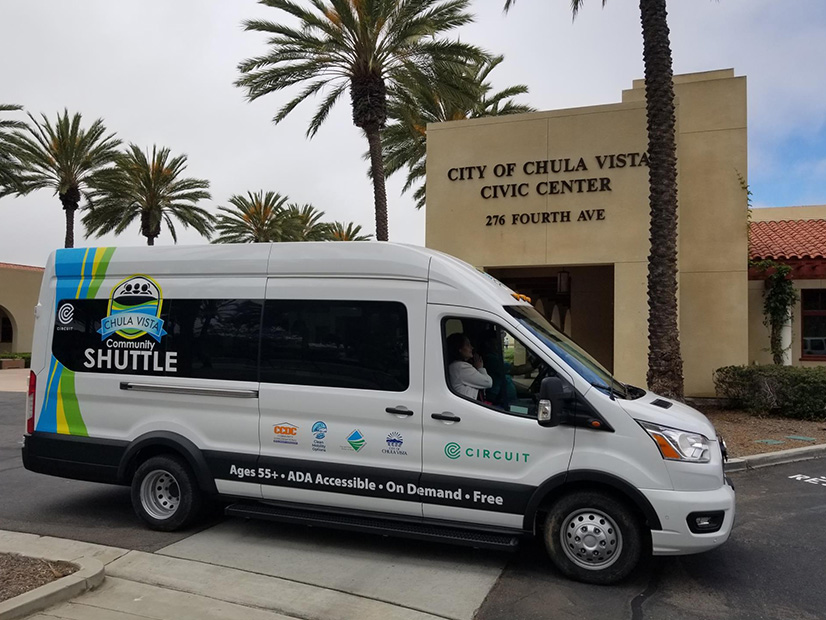
A California clean mobility program will open a $1 million funding round next month for nonprofits or public agencies to assess transportation needs in underserved communities.
Vouchers of up to $100,000 each will be awarded on a first-come, first-served basis. The application period opens on Nov. 2 at 9 a.m.
The vouchers are part of the Clean Mobility Options (CMO) program from the California Air Resources Board. CALSTART, a nonprofit group focused on clean transportation technologies, administers the program.
The vouchers will be available to tax-exempt nonprofits or public agencies. Examples of the latter include cities, counties, transit agencies or public school districts. Of the total funding, $200,000 has been set aside for tribal governments.
The proposals must cover areas that are disadvantaged, low-income or on tribal land.
Applicants may use their funding awards to identify transportation challenges in underserved communities and find ways to address them. The funds may be used to raise awareness of zero-emission mobility options such as car sharing or bike sharing.
Matching funds are not required.
Two Types of Awards
The CMO program is part of California Climate Investments, an initiative funded by cap-and-trade proceeds.
CMO includes two types of awards. Funding for community transportation needs assessments goes toward tasks such as information gathering, analysis and outreach. In the second type of award, CMO gives vouchers for specific mobility projects.
In its first funding window in 2020, CMO awarded $1.15 million for community transportation needs assessments to 24 applicants. Forty-one groups applied for the funds. The awards ranged from $18,750 to $50,000.
Also in its first funding window, CMO awarded $20 million to 21 applicants for zero-emission mobility projects in underserved communities.
The awards included $997,833 to the city of Chula Vista for an on-demand community shuttle serving seniors. The program, which launched in June 2022, will initially provide free rides in all-electric vehicles to passengers 55 and older in the northwest part of the city. Microtransit service Circuit operates the shuttle system.
Chula Vista plans to open the service to the general public in the second year, charging what it described as a small fare. The city received additional support for the project through a grant from the Community Congregational Development Corporation.
Another CMO award went to the Oakland Department of Transportation, which received $1 million for an e-bike “library.” The project will provide affordable medium- and long-term e-bike rentals in four disadvantaged Oakland neighborhoods, according to the city of Oakland.
About 500 e-bikes will be offered, including cargo bikes and adaptive bikes, which are designed for people with disabilities. The five-year project will be run by GRID Alternatives Bay Area in partnership with local bike shops.
Other types of projects that received CMO funding include electric vehicle car share programs, bike sharing and scooter sharing.
CMO expects to offer another round of mobility project vouchers next year.



